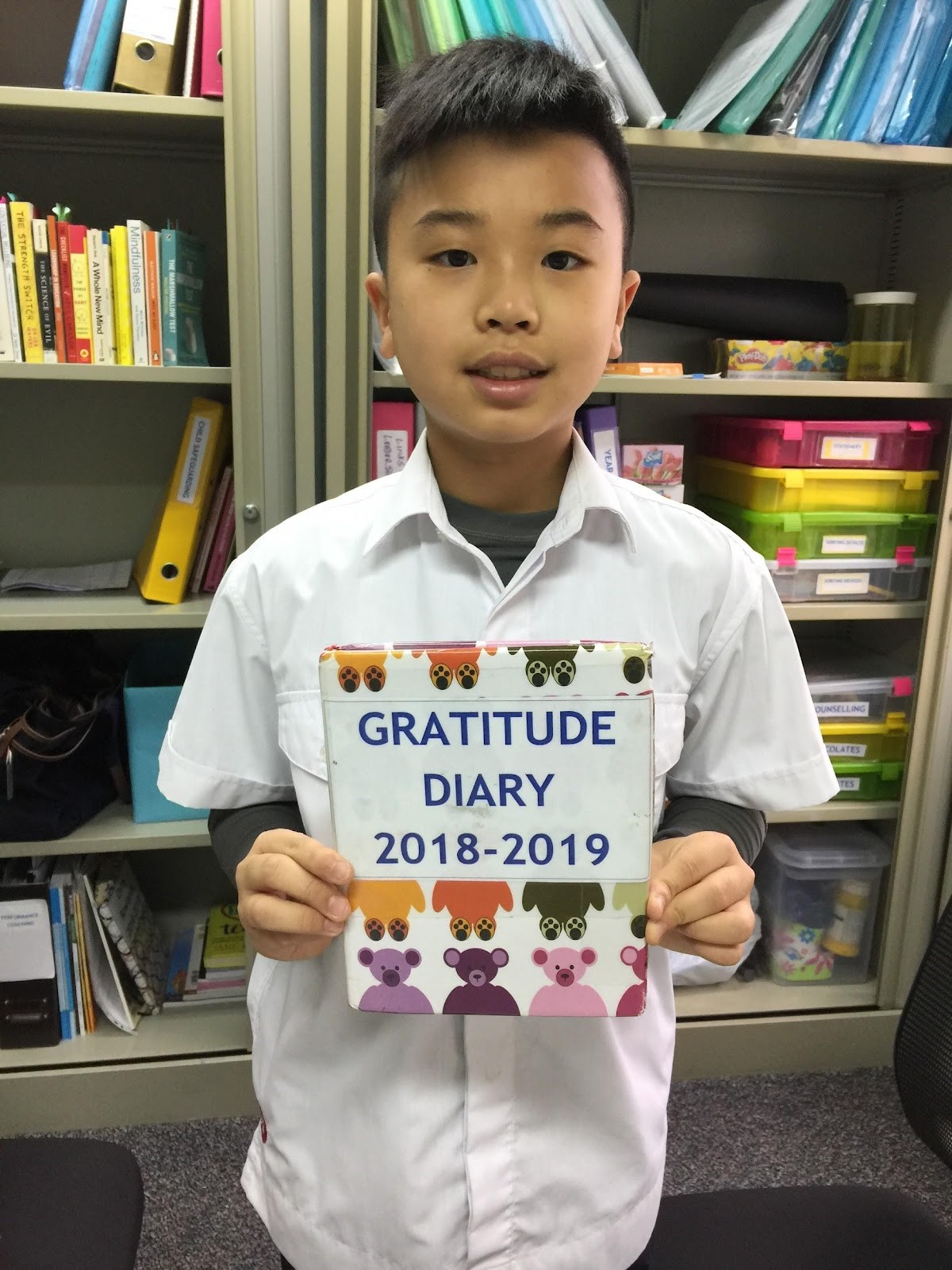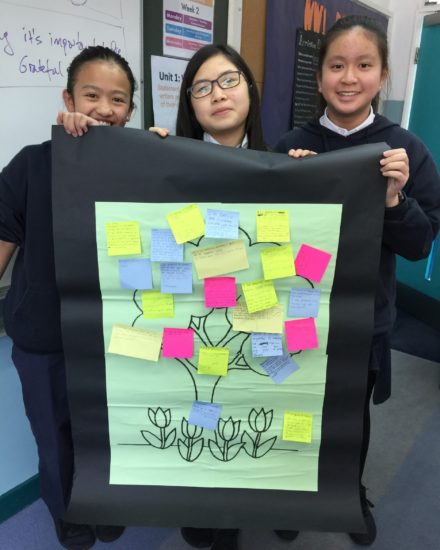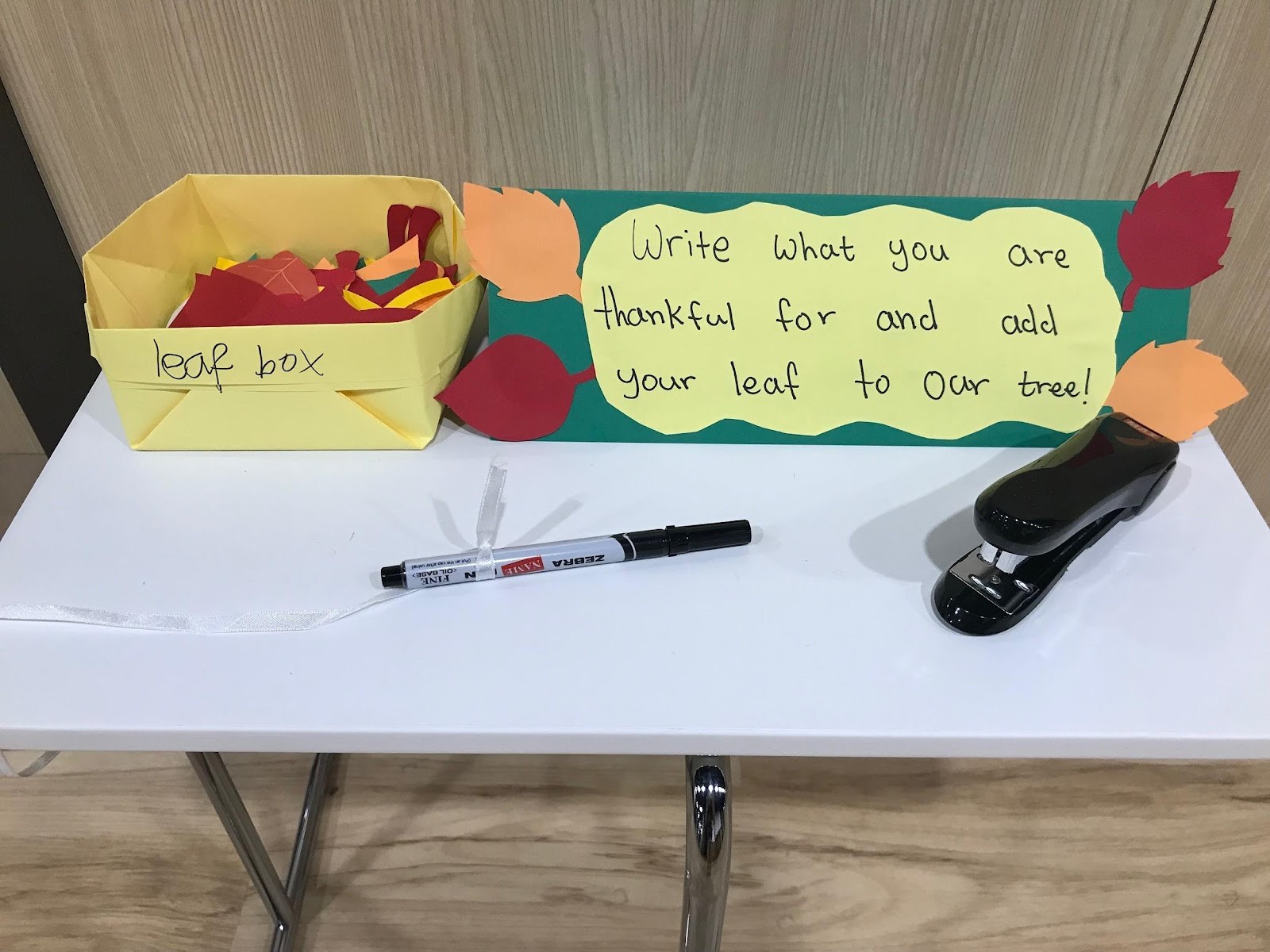Gratitude
What are you grateful for?
This might not be a question we ask ourselves often enough. Gratitude is the ability to recognise and acknowledge the good things, people and places in our lives. The Harvard Medical School says that gratitude is: “…a thankful appreciation for what an individual receives, whether tangible or intangible”. The word ‘gratitude’ is derived from the Latin word gratia, which means grace, graciousness, or gratefulness (depending on the context) and is thankful appreciation. As Aesop said “Gratitude turns what we have into enough”.
 In our busy lives, gratitude may not be something we are aware of consciously, but from a positive psychological perspective, gratitude is strongly linked with greater happiness. Gratitude helps people experience more positive emotions, savour positive experiences and there is increasing evidence that it has a positive impact on our physical health. Yes – gratitude is POSITIVE. You may have heard of one of the gurus in the world of positive psychology, Dr Martin Seligman, from the University of Pennsylvania who said in 2018, “the single strength that correlates the most with happiness is gratitude…people need to learn and practice gratitude”. Cultivating gratitude is a skill.
In our busy lives, gratitude may not be something we are aware of consciously, but from a positive psychological perspective, gratitude is strongly linked with greater happiness. Gratitude helps people experience more positive emotions, savour positive experiences and there is increasing evidence that it has a positive impact on our physical health. Yes – gratitude is POSITIVE. You may have heard of one of the gurus in the world of positive psychology, Dr Martin Seligman, from the University of Pennsylvania who said in 2018, “the single strength that correlates the most with happiness is gratitude…people need to learn and practice gratitude”. Cultivating gratitude is a skill.
Many years of research indicate that gratitude is a key to psychological well-being. Gratitude can even help counteract depression. Research from Northeastern University in the USA, found that people who felt grateful for little, everyday things were more patient and better able to make sensible decisions. A study in the Journal of Theoretical Social Psychology, revealed that feeling grateful toward a partner can improve numerous aspects of relationships, including feelings of connectedness and overall satisfaction.
We explicitly teach gratitude at Sha Tin College. In Year 7 GTS, for example, it is a key element of the ‘My Friends Youth’ unit because we know it can also help students feel more open, creative, and energised. Gratitude can also counter feelings of anxiety. This photo of one of my Year 7s students, Anson, shows him displaying our class ‘Gratitude Diary’. Students take it in turns to have the ‘Gratitude Diary’ for a week, during which time they write their own entry, then read it aloud to the rest of the class. This helps students focus on appreciation and valuing all the riches in their lives. I am always extremely proud of what the students include in the ‘Gratitude Diary’ because they recognise their families, teachers, friends and take a moment to reflect upon the many privileges they enjoy.

Anson shows our class ‘Gratitude Diary’
“What separates privilege from entitlement is gratitude.”
― Brené Brown
Last week, my class created a ‘Gratitude Tree’ in the lesson as Wisteria, Georgina and Helena show in this photo. This is just a simple, fun way to stop and recognise gratitude. We know that writing three things we are grateful for each night before sleep is an excellent habit to form and can result in less depression and increased levels of happiness.

Wisteria, Georgina and Helena with the ‘Gratitude Tree’
Feeling grateful has been linked to physical health outcomes, as well as psychological ones. For example, there are indications that gratitude may lower blood pressure and boost the functioning of the immune system. “Count blessings, not sheep”, says Emma Seppälä, a happiness researcher at Stanford and Yale Universities, and author of The Happiness Track. Research in the Journal of Psychosomatic Research also indicates that feeling grateful helps people sleep better and longer. This may be because people have more positive thoughts before falling asleep. “Gratitude is something that leads to much more sustainable forms of happiness, because it’s not based in that immediate gratification; it’s a frame of mind”, Seppälä says.
Research suggests that grateful individuals might behave in ways that keep them healthier, such as not smoking and consciously eating well.
All the world’s great religions espouse, teach and practice gratitude; gratitude has long been considered an important aspect of religion, playing a role in faith and spirituality.

Comments for the Learning Support Gratitude Tree.
Ways to cultivate and express gratitude
Gratitude is a way for people to appreciate what they have instead of always reaching for something new and thinking they can’t feel satisfied until every physical and material need is met. Although it may feel contrived when we first try it, this mental state grows stronger with use and practice.
“I was complaining that I had no shoes till I met a man who had no feet.”
― Confucius

People feel and express gratitude in multiple ways. We can look back and feel grateful, for instance, for wonderful memories or acknowledge the joys of our childhoods. We can recognise beautiful trees and stars in the present, and we can find ways to maintain hope and optimism in the future. We can demonstrate appreciation in small ways, each day, to successfully cultivate gratitude. Some examples are:
- Writing a ‘Thank You’ message to another person to help nurture a relationship.
- Trying mindfulness meditation – focusing on the present moment without judgment.
- Expressing gratitude by doing an act of kindness such as complimenting someone’s new hair style or buying a friend a coffee.
- Telling the special people in our lives how they make us feel and what they mean to us. This is not being ‘mushy’ or ‘over-the-top’, just saying things like… ‘I love the way you unexpectedly bring me flowers because it makes me feel so special’.
- Identifying when bad things turned out less badly or bad things that thankfully didn’t

Year 7 students, Ian and Alston, show off the Learning Support ‘Gratitude Board’
Gratitude reduces feelings of jealousy and helps us bounce back from stress. Gratitude makes us more trusting and more social. This promotes friendships and deepens our existing relationships. Gratitude stimulates two important regions in our brains: the hypothalamus, which regulates stress, and the ventral tegmental area, which has an important role in the brain’s reward system and produces feelings of pleasure.
True gratitude doesn’t leave you feeling like you owe other people something — after all, if you’ve done someone a favor, you probably don’t want the person to feel like you expect something in return. It’s all about feeling good and creating a cycle of good.
There are indications, in publications such as the 2015 New York Times article by Arthur C. Brooks, (author of Gross National Happiness) that “Acting grateful can actually make you grateful”. Brooks also suggests being grateful for the everyday things which can easily be overlooked. In Hong Kong these can include being grateful for living in a safe city, our incomparable transport system and the premium put on education.
“Let us be grateful to the people who make us happy; they are the charming gardeners who make our souls blossom.”
― Marcel Proust
Being grateful for what we DON’T have, can improve our wellbeing. Remember, gratitude costs absolutely nothing. Gratitude is a selfless act. We demonstrate it unconditionally to show others they are appreciated, not because we want something in return. Gratitude can be contagious, though, in a good way. Why don’t you try it?
Resources and References
- https://www.youtube.com/watch?v=JMd1CcGZYwU The Science of Gratitude
- https://www.youtube.com/watch?v=HfHV4-N2LxQ SOULPANCAKE STREET An Experiment in Gratitude: The Science of Happiness
- https://www.psychologytoday.com/us/blog/mindful-anger/201807/science-proves-gratitude-is-key-well-being Science Proves That Gratitude Is Key to Well-Being
- https://greatergood.berkeley.edu/article/item/why_gratitude_is_good Why Gratitude is Good
- https://www.youtube.com/watch?v=oHv6vTKD6lg An Experiment in Gratitude The Science of Happiness
- https://www.youtube.com/watch?v=JEDGFaXYIX8 Morning Gratitude Affirmations- Listen For 21 Days! (432Hz)
- http://gu.com/p/4dm3p?CMP=Share_AndroidApp_Gmail Could Gratitude be The Most Important Emotion of All?
- http://greatergood.berkeley.edu/article/item/seven_ways_to_foster_gratitude_in_kids#?utm_source=GGSC+Newsletter-+March+2014&utm_campaign=GG+Newsletter+-+March+2014+&utm_medium=email Ways to Foster Gratitude
- https://www.shape.com/lifestyle/mind-and-body/how-to-practice-gratitude-benefits 5 Ways You’re Practicing Gratitude Wrong
- https://www.health.harvard.edu/healthbeat/giving-thanks-can-make-you-happier Giving thanks can make you happier
- http://time.com/5026174/health-benefits-of-gratitude/ 7 Surprising Health Benefits of Gratitude
- https://greatergood.berkeley.edu/article/item/is_gratitude_good_for_your_health Is Gratitude Good for Your Health?
- https://www.coursera.org/lecture/positive-psychology-visionary-science/try-this-at-home-building-the-skill-of-gratitude-suggested-exercise-what-went-GU2fd Positive Psychology: Martin E. P. Seligman’s Visionary Science
- https://positivepsychologyprogram.com/gratitude-appreciation/ What is Gratitude and Why is It So Important?
- https://greatergood.berkeley.edu/article/item/seven_ways_to_foster_gratitude_in_kids Seven Ways to Foster Gratitude in Kids


